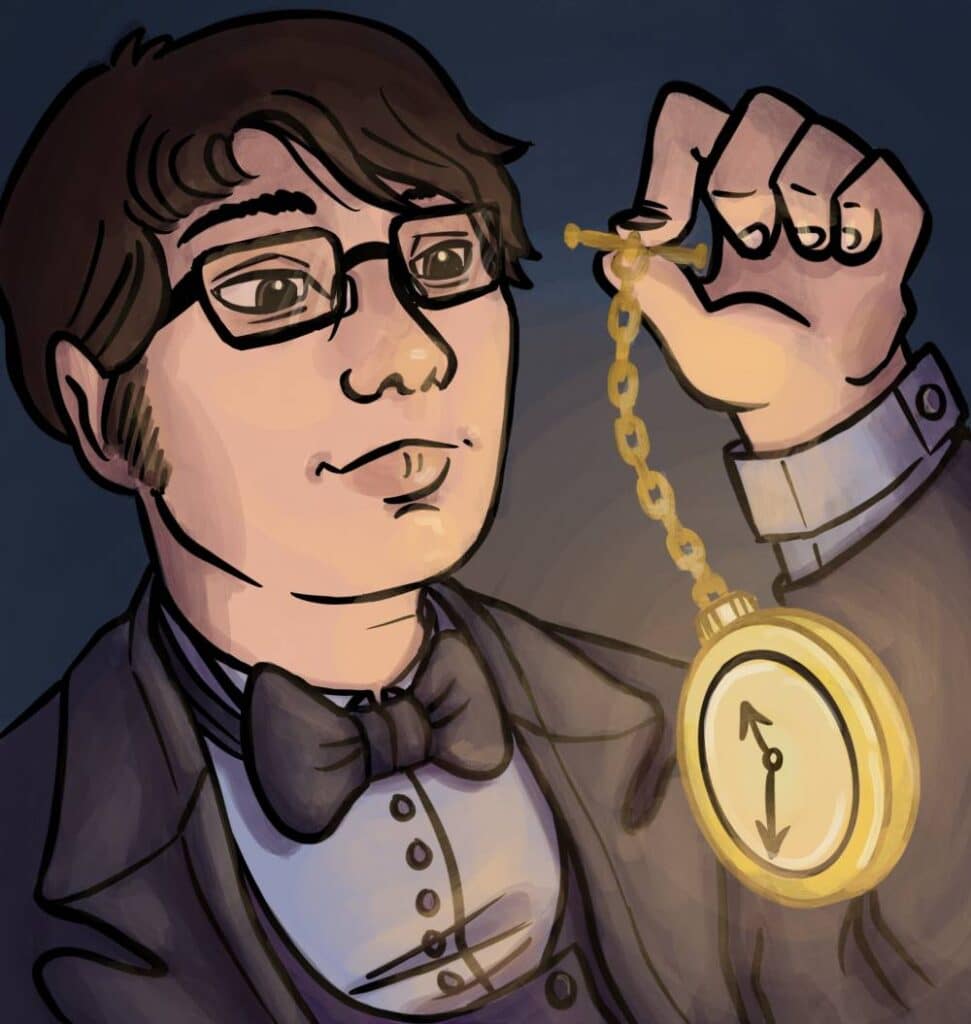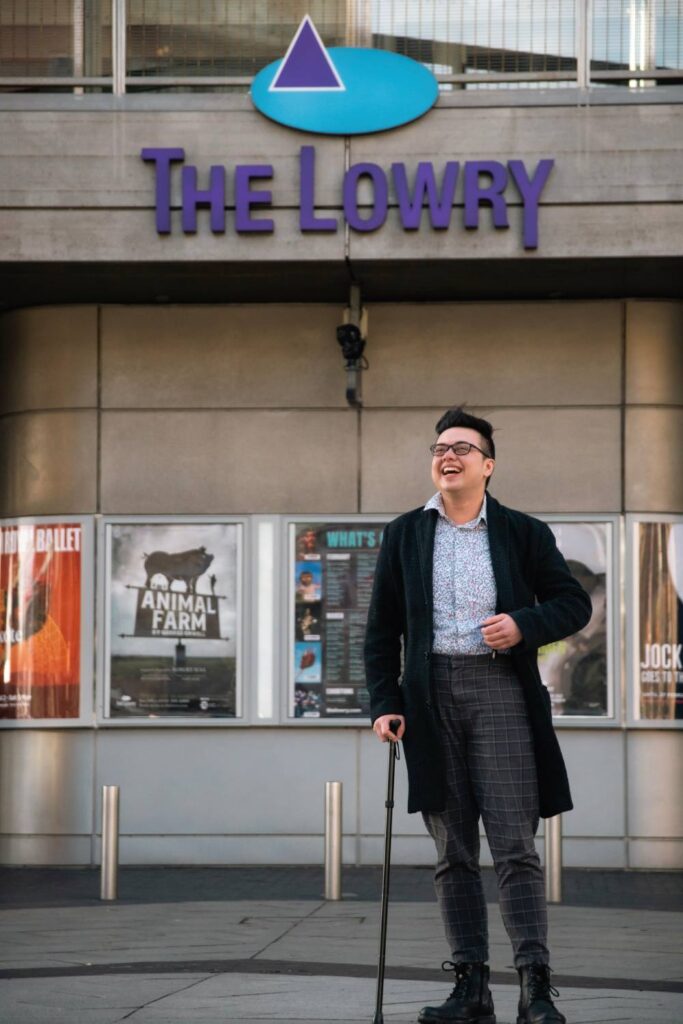Meet the queer comic book artist conjuring up epic trans fantasies and gay Victorian romances

Manchester based illustrator Julian Gray talks about authentic representation in comics and graphic novels. (Rachel Poxon/Julian Gray)
Like many queer folk, as a teen Julian Gray was a fan of the Batman comic – because it was about “big, burly men”.
Eventually, he lost interest in such stories as “they’re so far removed from my experiences as the person that I am”.
“I’m trans, queer, disabled, a person of colour, neurodivergent,” Gray, now a comic book artist in his own right, tells PinkNews. “There’s not many things that kind of resemble me in the media and particularly when it comes to things that are fantastical.”
When Gray began creating his own comics, there wasn’t ever a chance they’d follow the cookie-cutter mould.
His sapphic medieval fantasy comic, Witch & Warrior, tells the story of a brave trans knight falls in love with the very witch she’s sent to kill, depicted solely through illustrations, with no dialogue.
Another work, The Invalid’s Valet, takes inspiration from his experiences with chronic illness. A Victorian queer romance, it follows Percy, a disabled aristocrat, whose only contact with the outside world comes during his daily outings with his valet Worthington. But when his wheelchair breaks, Percey becomes depressed, and Worthington must find a way to connect with him.

Julian Gray self portrait. (Julian Gray)
“They say, ‘Write what you know’,” Gray says. “When I sit down and write a comic, it just kind of naturally comes that I write things that tend to be – in particular – queer stories.
“There are so many stories that have been written by and told for the cis, het, white male audience that Hollywood tends to cater to. So I’m not going to be apologetic about the fact that my stories are for the people who aren’t in those categories.”
Becoming a professional comic book artist was never in Gray’s plan. Though art was always a hobby, he was “discouraged from studying a creative subject” and instead read psychology at university.
Towards the end of his time at university, he began “getting the sense that maybe it wasn’t what I wanted to dedicate my life to”.
Things changed when, halfway through his master’s degree, his health suddenly took a turn, and he was diagnosed with Chronic Fatigue Syndrome (CFS) and ME.
“I didn’t get any guidance on how to cope with it or any management techniques,” Gray recalls. “It was just like I got given this diagnosis, and then it was like: ‘Carry on your way.’”
Eventually he dropped out of his degree – something that came as a “huge blow”.
Gray spent around a year “virtually housebound” because of his health, and it was during this time that he started to focus back on his art.
View this post on Instagram
Eventually he got to a point where his health became a “little bit more manageable”, and to where he began considering turning his illustration hobby into a career.
“I think [comics] has to be something that you love because otherwise you’ll give up,” Gray says. “As a child, if I’d ever met anybody who was like, ‘I do comics for a living’, I would think that was cool. But you never think: ‘That could be me.’”
Now he has a solo show at the Lowry, near Manchester – Stories For Us which runs through to Monday (2 May).
It’s the first time he can “point at the comic work” and say that it has “finally come to something”.

Julian Gray stands before the art gallery The Lowry. (Rachel Poxon)
As well as exhibiting Gray’s creative work, the show also gives visitors the opportunity to engage with the process of making a comic. This includes the chance for people to draw, write and even display their finished creations in the gallery.
Ultimately, Gray wants to encourage others who have been in “situations like mine” to nurture their artistic talents and follow their passions.
Though representation of marginalised communities is on the up, queer folk, people of colour, disabled people and others are still scare in fantasy stories or anything that isn’t “just about real life stories”, Gray says. While gatekeeping is perhaps the biggest obstacle of all, he wants to show others that having a voice is possible.
“My joy is just seeing people from my communities doing the stuff that I didn’t know I could do several years ago,” Gray says. “It’s kind of reaching back into who I was a few years ago and saying: ‘Hey, you can do this stuff.'”
Stories For Us runs until 2 May, and people can book slots to visit the exhibition through the Lowry’s website.

